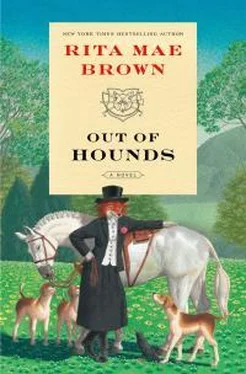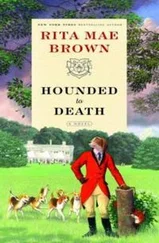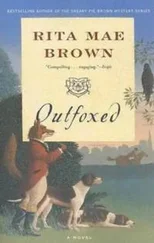Rooster grumbled. “Why is she always petting that damned cat?”
“Golly is on the sofa. We’re on the floor.” Raleigh rolled over.
“Yeah.” Rooster put his head on his paws while Golly looked down from her perch, such a satisfying position.
Gray stayed with his brother at the old Lorillard home place two days a week, so Sister was alone. She never minded being alone, but then with two dogs and a cat, she never was.
Tempted though she was to call him, she refrained. The two brothers were slowly restoring the clapboard house, lovely proportions, simple lines, dark navy shutters, almost black. They needed their time together but O.J.’s comment about the First Amendment bothered her. She believed in the U.S. Constitution just as she believed in the Ten Commandments.
“Thou Shalt Not Steal,” she whispered out loud.
CHAPTER 7
February 12, 2020 Wednesday
North central New Jersey could face a blizzard, a rainy day, or an odd warmish day in the middle of February. Many residents considered February the longest month of the year, but they did not hunt with Essex Fox Hounds, whose members had burned a high number of calories this Lincoln’s birthday.
The field walked back to the trailers after a bracing day flying across the open fields and negotiating what wasn’t open. Their pack of mostly American hounds stuck to the line. The low clouds helped scent and the temperature hung above freezing. This kind of day yields deceptive footing, for patches can still be hard as a rock, a deep frost, while others have softened.
Out for the day on a borrowed horse rode Buddy Cadwalder. Essex wasn’t that far from Newtown Square, Pennsylvania, where he lived. He and his late wife loved the history, the closeness to the Brandywine Battlefield, Andrew Wyeth territory, the painter who captured the area.
Since Sophia died two years ago he became increasingly lonely. He wouldn’t admit it but he hunted around the many hunts in that area, New Jersey, Maryland, also quite close.
He had hoped he might find companionship with a hunting lady. So far he had not but he had sold furniture. Some good came out of it.
This part of New Jersey still has farms, estates with cultivated land. Most people in this section of a much misunderstood state are well off. The taxes are outrageous. Property owners needed to be rich to pay them.
One of whom came home, handed over her horse to her groom, walked into her gorgeous home, and didn’t notice immediately the painting by Munnings of an American, Mrs. Prince, was missing from the parlor. When she noticed she blinked. No, she was not imagining that blank spot. The evocative work, entitled The Ride to the Chateau, Mrs. Prince riding sidesaddle wearing a top hat with a wider ribbon than most, was missing. Munnings liked Americans. For one thing we paid straight up. But he did like us and he very much liked Mrs. Prince, who evidenced no sense of time, often late.
The painting of Mrs. Prince, relaxed, showed a woman of middle years, good-looking, walking along, a background not manicured but country. Frederick Prince was master of the Pau Hunt, no longer in existence. They were enormously wealthy.
Geneva Mansfield came to own the work through her mother’s family. The Mansfields had money but not pots and pots of it. When her grandfather bought the painting it was affordable. The surprise was the Prince family letting it go after the subject passed away.
When the police arrived she had composed herself. No one could figure out how the thief could walk out with this work; the frame alone was heavy. The stable girl, mucking stalls, did not hear or see any vehicles. No one else but her was on the small farm at the time.
Given that this was the second priceless Munnings stolen in five days, it made the news.
Sister watched with Gray.
“There must be a new, huge market for Munnings,” Gray, feet up on the hassock, fire warming them, remarked.
“There’s always been a market for Munnings, but this, I don’t know.” She stood up, walking to the hallway. “Need anything?”
“No.”
She walked the old polished floor, walked upstairs, then came down with a large book of Sir Alfred Munnings’s work.
“Here. I keep this in my little room off the bedroom, along with my old nineteenth-century foxhunting books.”
He opened the pages, found The Ride to the Chateau.
“Sidesaddle,” she stated.
“So I see.” He looked over to her, now seated again. “As long as this is confined to paintings. We can assume these works are insured.”
“Money can’t compensate for a loss like that.”
“No. Strange as this is, as long as someone riding sidesaddle today is unmolested, people are probably okay. It’s about money.”
“Gray, that’s perverted. Someone attacking women riding sidesaddle?”
“People are perverted. And sidesaddle is making a comeback. Hunt shows are putting back sidesaddle classes.”
She ran her finger over her lips. “I can’t believe they could be connected.”
“Well, as long as no one is kidnapped or killed, they are not.”
—
The good news of the day was that Sam rode Sugar, who was an obedient girl. The mare, so beautiful, could have been a subject for Sir Alfred Munnings. What a gift to be able to capture an animal or person’s essence, one that would travel through centuries.
Sam dismounted, untacked, admired Sugar. He thought for a moment about someone painting her. Then he thought a bit deeper. Money is temporal power. Great art is eternal power.
CHAPTER 8
February 13, 2020 Thursday
Welsh Harp, Jefferson Hunt’s northernmost fixture, covered what old-timers called “Billy goat land.” The poor soils discouraged corn, wheat, soybeans. Cow-quality hay could be grown but not horse-quality. For all that, the spectacular views held people spellbound. The small cottage, itself simple fieldstone, sat on a ridge eight hundred feet high, so the views spanned three hundred sixty degrees. So did the wind.
The pastures surrounded the well-kept place, beyond which the woods grew thick. Over years the trees had been thinned out, which meant what was left grew to an enormous girth. The owners, Vivian and Grant Chafee, spent winters in Tempe, Arizona, and the summers in Virginia. Sister kept an eye on the place, a courtesy most masters practiced for their landowners. Hounds found on the west side of the house but that fox slipped away after a bracing ten-minute run. A herd of deer blasted out of the woods, across the western pasture.
Sister didn’t blink. She knew the hounds would ignore them, which they did. Tootie not out today because of a test at UVA meant Sister was one whip shy. Thinking about it, she had asked Kasmir and Alida if they would consider whipping-in together.
Both jumped at the chance. So there they were on the left side, perhaps the tiniest bit apprehensive but also excited after that brief run. The whippers-in usually have the best seat in the house.
Weevil, none too familiar with this fixture, checked the wind, perhaps eight miles per hour. Not a problem but not a help either. So he called the hounds to him then slipped over the slight rise in this pasture down toward the woods.
“Get ’em up. Get ’em up,” he called in a singsong voice. Dragon, out today, moved away from the pack.
“Dragon,” Weevil called, for Dragon could hit a lick before you knew it, and he was right, but too far in front.
Keeping hounds together takes training. It’s not that a huntsman minds them in a line or even frets over some few hounds who will fan out a bit at the edges. If you know your hounds, you know who is young, needing more time, who knows the game. The young ones learn if encouraged.
Читать дальше












